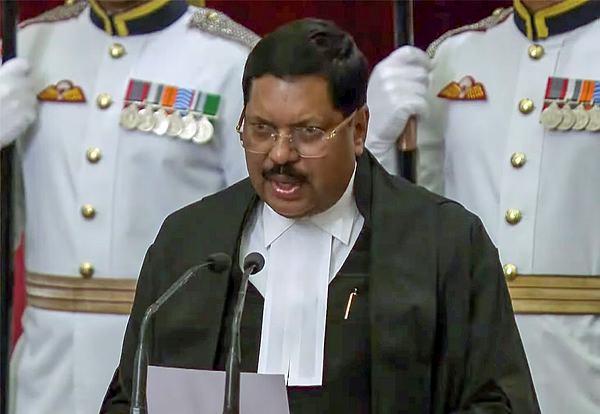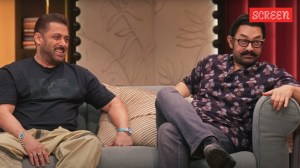‘None superior or inferior’: CJI B R Gavai advises judges to wield their immense power with humility
Speaking at the All India Conference of the Central Administrative Tribunal, Union minister Arjun Ram Meghwal said there was a need to end the routine filing of appeals which is clogging the justice system.
 The CJI also referred to the recent Supreme Court ruling laying down a three-year practice requirement for lawyers to sit for the magistrate examination. (File photo)
The CJI also referred to the recent Supreme Court ruling laying down a three-year practice requirement for lawyers to sit for the magistrate examination. (File photo)Addressing the 10th All India Conference of the Central Administrative Tribunal (CAT) in Delhi Saturday, Chief Justice of India B R Gavai advised judges to exercise power with humility and responsibility.
“Recently, we…noticed that due to the conduct of some judges there is a discontent in the Bar. I recently read a newspaper item…wherein, because of one judge in a high court — I won’t name the judge or the high court — the young lawyer was so brow-beaten that he became unconscious in the court,” he said.
The CJI said, “As judges we must also accept the position that both lawyers as well as the judges are like two wheels of the golden chariot of justice, none superior, none inferior. Unless the lawyers and the judges work together, the institution of administration of justice, which exists for the last citizen of this country, cannot work properly.”
“As judicial officers, as judges, as members of the tribunal, we wield immense power but we must carry this power with the utmost humility and responsibility. All litigants who appear before us do so with the faith that they will receive justice before us and our judgment should not be coloured,” Gavai said.
“Everyone should honour this responsibility not just within the official spaces but outside as well. In many ways our roles are those of a leader. We shape the lives of several thousands of citizens through the outcomes that we determine. We also affect the faith of the citizens in the country’s judiciary,” he added.
The CJI also referred to the recent Supreme Court ruling laying down a three-year practice requirement for lawyers to sit for the magistrate examination and said it was done as some of the freshers without the requisite experience had started browbeating even senior lawyers.
“One crucial aspect I would also like to discuss on the conduct of judges, judicial officers, quasi-judicial officers…in the All India Judges case, we have reintroduced the requirement of three years for law graduates to be eligible for the examination of the JMFC (Judicial Magistrate First Class). We have done so after we collected the data from all the states and also all the high courts and it was noticed that the fresh graduates who did not have any experience of or exposure to the court, the chair would go to their head on the very first day and they would browbeat or irritate lawyers with standing of 40 years and 50 years,” the CJI said.
“And therefore we thought that it was necessary that the candidate before appearing for the examination should be exposed to the nuances of the court practice and procedure,” he stated.
Speaking at the event, Union Law Minister Arjun Ram Meghwal said there was a need to end the routine filing of appeals which is clogging the system. “When I see files, sometimes I see the judgment is very good, but still the department says we must file appeal. How do we correct this?” he asked, adding that often the case continues till an employee has retired. “We must discuss how to find a solution… Please correct this,” he said.
Agreeing with his comments, Union Minister of State for Science and Technology Jitendra Singh said, “If the core purpose of CAT (Central Administrative Tribunal) was to reduce backlog in high courts and to ensure easy, accessible justice, then would we be living to that envisaged objective or ideal if we have this culture? If the employee gets a favourable judgment, the department goes to the court. If the department goes, the employee will come.”
Singh added, “Actually, it is time to ask if we have actually introduced ease of justice or we have just introduced one more step into this at the cost of the state exchequer, time and what not. And what would be the solution to that? Do we need some checks? Do we need some embargoes?”
Photos





- 01
- 02
- 03
- 04
- 05


























